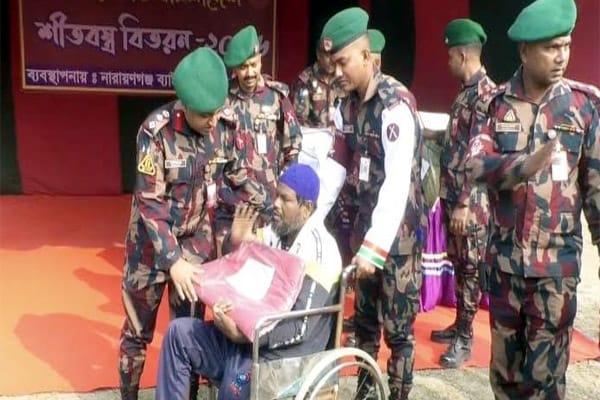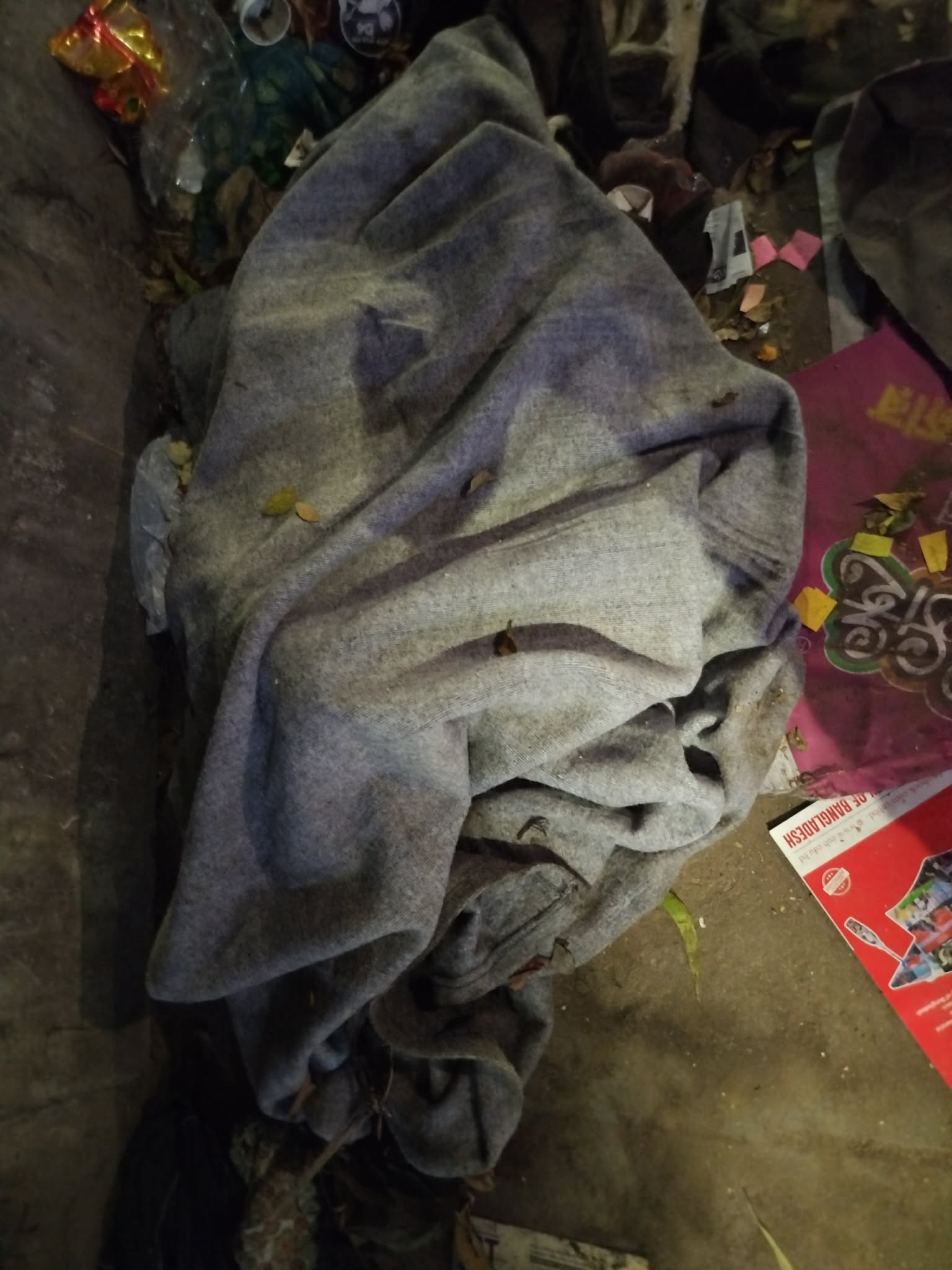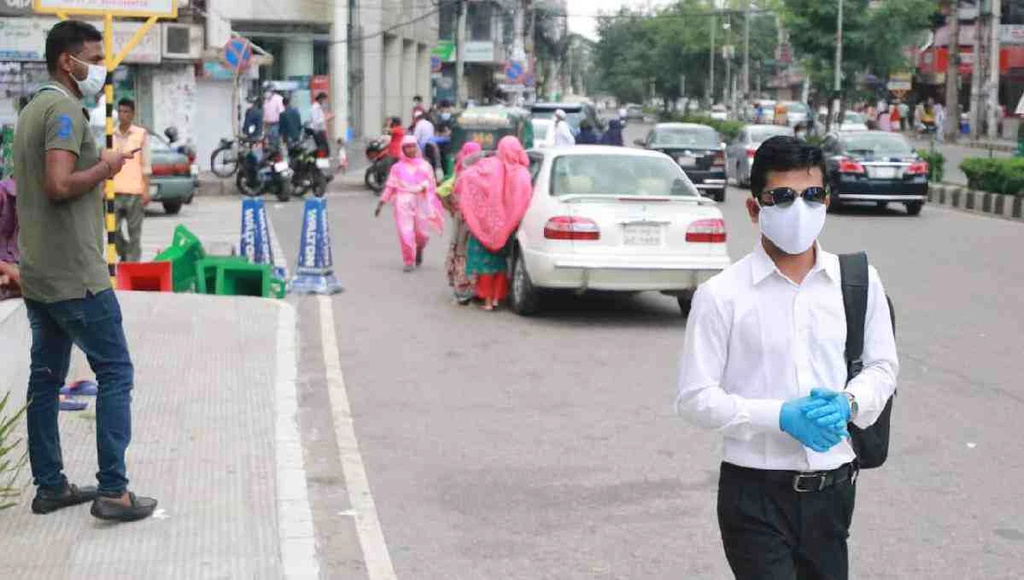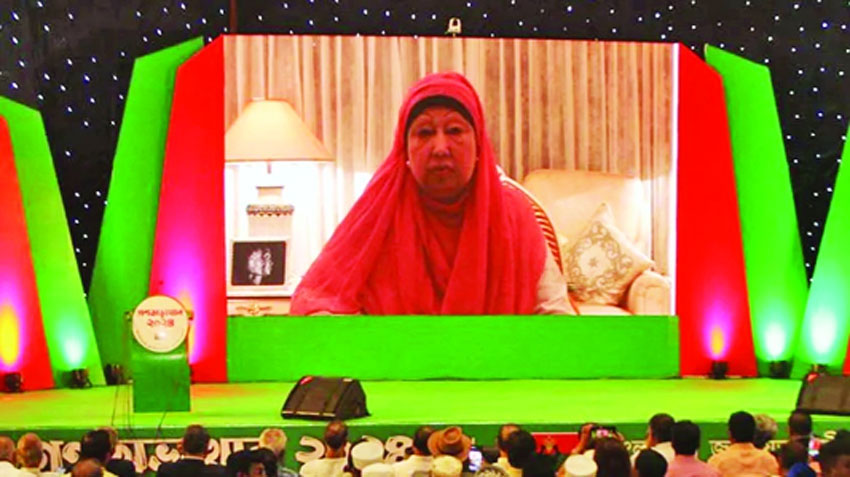- 2021-08-14 04:45:32
- LAST MODIFIED: 2026-02-15 05:03:56
Rush of troops to Kabul tests Biden's withdrawal deadline
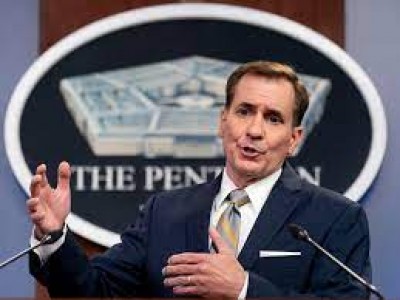
Photo Collected:
International Desk:
Dhaka, Aug-14,
The last-minute decision to send 3,000 U.S. troops to Afghanistan to help partially evacuate the U.S. Embassy is calling into question whether President Joe Biden will meet his Aug. 31 deadline for fully withdrawing combat forces. The vanguard of a Marine contingent arrived in Kabul on Friday and most of the rest of the 3,000 are due by Sunday.
Officials have stressed
that the newly arriving troops’ mission is limited to assisting the airlift of
embassy personnel and Afghan allies, and they expect to complete it by month’s
end. But they might have to stay longer if the embassy is threatened by a
Taliban takeover of Kabul by then. On Friday the Taliban seemed nearly within
reach of contesting the capital.
“Clearly from their
actions, it appears as if they are trying to get Kabul isolated,” Pentagon
spokesman John Kirby said, referring to the Taliban’s speedy and efficient
takedown of major provincial capitals across the country in recent days.
Biden had given the
Pentagon until Aug. 31 to complete the withdrawal of the 2,500 to 3,000 troops
that were in Afghanistan when he announced in April that he was ending U.S.
involvement in the war. That number has dropped to just under 1,000, and all
but about 650 are scheduled to be gone by the end of the month; the 650 are to
remain to help protect the U.S. diplomatic presence, including with aircraft
and defensive weapons at Kabul airport.
But Thursday’s decision
to dispatch 3,000 fresh troops to the airport adds a new twist to the U.S.
withdrawal. There is no discussion of rejoining the war, but the number of
troops needed for security will depend on decisions about keeping the embassy
open and the extent of a Taliban threat to the capital in coming days.
Having the Aug. 31
deadline pass with thousands of U.S. troops in the country would be awkward for
Biden given his insistence on ending the 20-year U.S. war by that date.
Republicans have already criticized the withdrawal as a mistake and
ill-planned, though there’s little political appetite by either party to send
fresh troops to fight the Taliban.
Kirby declined to
discuss any assessment of whether the Taliban are likely soon to converge on
Kabul, but the urgent movement of extra U.S. troops into Afghanistan to assist
the embassy drawdown is clear evidence of Washington’s worry that after the
rapid fall of major cities this week with relatively little Afghan government
resistance, Kabul is endangered.
Kirby reiterated the
Biden administration’s assertion that Afghan security forces have tangible
advantages over the insurgents, including a viable air force and superior
numbers. The statement serves to highlight the fact that what the Afghan forces
lack is motivation to fight in a circumstance where the Taliban seem to have
decisive momentum.
Stephen Biddle, a
professor of international and public affairs at Columbia University, said in
an interview the announcement that 3,000 U.S. troops are heading to Kabul to
help pull out American diplomats and embassy staff likely made Afghan morale
even worse.
“The message that sent
to Afghans is: ‘The city of Kabul is going to fall so fast that we can’t
organize an orderly withdrawal from the embassy,’” Biddle said. This suggests
to Afghans that the Americans see little future for the government and that
“this place could be toast within hours.”
Kirby said lead
“elements” of a Marine battalion arrived in Kabul on Friday as the U.S. speeds
up evacuation flights for some American diplomats and thousands of Afghans. The
rest of that battalion and two others are due in coming days.
“Clearly from their
actions, it appears as if they are trying to get Kabul isolated,” Pentagon
spokesman John Kirby said, referring to the Taliban’s speedy and efficient
takedown of major provincial capitals across the country in recent days.
Biden had given the
Pentagon until Aug. 31 to complete the withdrawal of the 2,500 to 3,000 troops
that were in Afghanistan when he announced in April that he was ending U.S.
involvement in the war. That number has dropped to just under 1,000, and all but
about 650 are scheduled to be gone by the end of the month; the 650 are to
remain to help protect the U.S. diplomatic presence, including with aircraft
and defensive weapons at Kabul airport.
But Thursday’s decision
to dispatch 3,000 fresh troops to the airport adds a new twist to the U.S.
withdrawal. There is no discussion of rejoining the war, but the number of
troops needed for security will depend on decisions about keeping the embassy
open and the extent of a Taliban threat to the capital in coming days.
Having the Aug. 31
deadline pass with thousands of U.S. troops in the country would be awkward for
Biden given his insistence on ending the 20-year U.S. war by that date.
Republicans have already criticized the with drawal as a mistake and
ill-planned, though there’s little political appetite by either party to send
fresh troops to fight the Taliban.
Kirby declined to
discuss any assessment of whether the Taliban are likely soon to converge on
Kabul, but the urgent movement of extra U.S. troops into Afghanistan to assist
the embassy drawdown is clear evidence of Washington’s worry that after the
rapid fall of major cities this week with relatively little Afghan government
resistance, Kabul is endangered.
Kirby reiterated the
Biden administration’s assertion that Afghan security forces have tangible
advantages over the insurgents, including a viable air force and superior
numbers. The statement serves to highlight the fact that what the Afghan forces
lack is motivation to fight in a circumstance where the Taliban seem to have
decisive momentum.
Stephen Biddle, a
professor of international and public affairs at Columbia University, said in
an interview the announcement that 3,000 U.S. troops are heading to Kabul to
help pull out American diplomats and embassy staff likely made Afghan morale
even worse.
“The message that sent
to Afghans is: ‘The city of Kabul is going to fall so fast that we can’t
organize an orderly withdrawal from the embassy,’” Biddle said. This suggests
to Afghans that the Americans see little future for the government and that
“this place could be toast within hours.”
Kirby said lead
“elements” of a Marine battalion arrived in Kabul on Friday as the U.S. speeds
up evacuation flights for some American diplomats and thousands of Afghans. The
rest of that battalion and two others are due in coming days.
End/Dct/Int/Sma/


